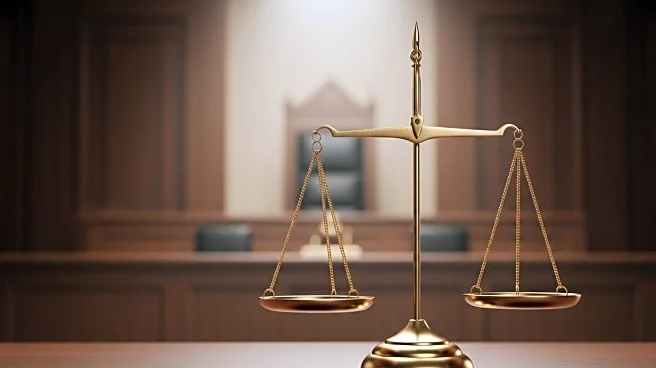What's Happening?
The U.S. Supreme Court has declined to hear Ghislaine Maxwell's appeal against her conviction related to sex-trafficking charges connected to Jeffrey Epstein. Maxwell, who was sentenced to 20 years in federal prison in 2022, argued that she should have been protected by a non-prosecution agreement Epstein secured in Florida. However, the court's decision means her sentence will remain unless a presidential pardon is granted. Maxwell's legal team expressed disappointment but vowed to continue exploring legal avenues. The New York-based 2nd U.S. Circuit Court of Appeals previously ruled that the Florida agreement did not bind New York authorities.
Why It's Important?
The Supreme Court's decision to reject Maxwell's appeal underscores the legal system's stance on holding individuals accountable for their roles in sex-trafficking schemes. This outcome is significant for victims seeking justice and may deter similar future crimes. The ruling also highlights the complexities of non-prosecution agreements and their jurisdictional limitations. The case has drawn public attention due to Maxwell's connections with high-profile individuals, including President Trump, who has not ruled out the possibility of a pardon. The decision may influence ongoing discussions about legal accountability and the protection of vulnerable individuals.
What's Next?
Maxwell's legal team plans to pursue further legal options to challenge her conviction. Meanwhile, the possibility of a presidential pardon remains uncertain, with President Trump indicating he would consult the Department of Justice before making any decisions. The case continues to attract public and media scrutiny, particularly regarding the involvement of other high-profile figures. The Justice Department's ongoing investigations into Epstein's network may reveal additional information, potentially leading to further legal actions against other individuals involved.










